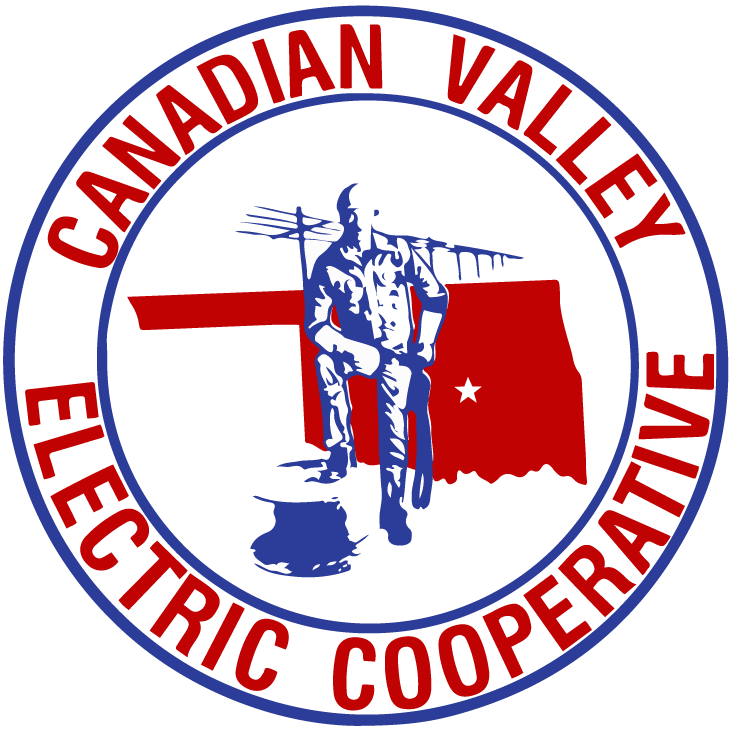Interested in becoming a board member of the cooperative?
Becoming a Trustee of your electric cooperative can be a rewarding and educational experience. It is truly a position of service to the community and requires continual learning, understanding of your community, understanding of business principles, and understanding of both the electric utility business and broadband and telecom business.
Expect to jump into an alphabet soup of acronyms around the electric and broadband businesses that will initially leave your head spinning. Most Trustees will take 1-2 years completing minimum requirements for Credentialed Cooperative Director certification and 3-5 years to fully come up to speed on the industry.
An electric utility and broadband business is a very heavy ship to steer. The cooperative makes large investments in infrastructure for long periods of time and as such must stay up to date on long term potential market and industry trends as well as current regulatory and legislative affairs. We do not always move fast, but we do move with a purpose. It is not a monopoly business as many would believe and the model is constantly challenged through both technology advancements and legislative curve balls that could potentially leave members with hundreds of millions of dollars of stranded assets if not managed well. In short, we need to be able to see around corners, assess the terrain, and make investments accordingly.
The broadband business by contrast operates in a fully competitive environment and at a much faster pace. Technology decisions here include planned obsolescence on much shorter timelines. Being nimble is critical. Competition occurs not just at the street level but primarily in the Federal and State legislatures and there is a plethora of roadblocks and legislative hurdles that are constantly emplaced.
Both businesses are highly regulated in their respective realms. Both of these businesses share the cooperative principles and values. Both of these businesses have a level of service as a differentiator. Neither of these businesses are investor owned and do not have a goal of maximizing investor returns, instead, being owned by the people they serve, the motives are to provide the best service possible within the economic constraints which is a vastly different mindset than investor-owned models.
Successfully navigating these hurdles requires a team effort and is a big part of how the cooperative works every day to Improve Life and Serve Community.
Duties of a Trustee
A Trustee of Canadian Valley Electric Cooperative:
- Has fiduciary duty to the cooperative and must act in the best interest of the cooperative.
- May represent the cooperative on associated boards or through membership in affiliated organizations such as Western Farmers G&T, Oklahoma Association of Electric Cooperatives & National Rural Electric Cooperative Association.
- Is bound by the policies of the cooperative
- May participate in meetings with public officials.
The Board of Trustees:
- Establishes policy to be executed by the management.
- Hires the CEO and the Cooperative attorney.
- Approves budgets.
- Authorizes capital financing vehicles such as debt.
- Establishes key metrics such as debt, equity ratios, and other financial and performance metrics.
- Authorizes rate tariffs to be filed with the Oklahoma Corporation Commission.
Board Meetings
Board meetings are typically one day per month. Special meetings may be called as needed.
During a typical board meeting a Trustee will:
- Receive reports from various organizations such as our wholesale power supplier, statewide associations, national organizations, and cooperative staff.
- Review, evaluate, and make strategic decisions regarding activities of the cooperative.
- Review and update policies.
Compensation
- Trustees are paid a per-diem amount for meetings attended and mileage.
- Trustees may opt-in to purchasing health insurance coverage through the cooperative.
- Trustees are not covered by any other cooperative benefit.
Expected time demands
Trustees are expected to work on average 16-hours per month on behalf of the cooperative. This will come in the form of board meetings, participation with related entities (OAEC, WFEC, NRECA) and participation with local organizations on behalf of the Cooperative.
Political Action Committees
You will likely participate in a couple of key political action committees, Oklahoma Electric Cooperatives PAC which is the Oklahoma State PAC and the Americas Electric Cooperatives PAC which is the Federal PAC.
Educational Opportunities
As a Trustee you will be required to complete some basic courses on the electric cooperative business. Three programs that we rely on heavily are the Credentialed Cooperative Director, the Board Leadership Program, and the Director Gold Credential Program which are all sponsored by the National Rural Electric Cooperative Association.
These programs focus on the following functional areas:
- Cooperative Business Model
- Power Supply
- Governance
- Financial
- Communications
- Technology
- Risk Management
- Grassroots
Trustee’s Oath of Office
"I do solemnly swear (or affirm) that I will support the Constitution and the laws of the United States of America, the Constitution and the laws of the State of Oklahoma, and the bylaws of Canadian Valley Electric Cooperative, Inc., and that I will faithfully discharge according to the best of my ability the duties of my office during such time as I am a trustee of Canadian Valley Electric Cooperative, Inc., and that I will never knowingly do or cause to be done any act or deed which would not be in the best interest of the Cooperative and its membership."
Resources to learn more about the utility industry
If you want to learn more about the electric business here are a few good starting points that are fairly comprehensive.
1. Shorting the Grid – Meredith Angwin
2. How to Avoid a Climate Disaster – Bill Gates
3. A Question of Power: Electricity and the Wealth of Nations – Robert Bryce
4. The New Map – Energy, Climate, and the Clash of Nations – Daniel Yergin
5. Oklahoma Corporation Commission Rules for Utilities, Title 165, Chapter 35

